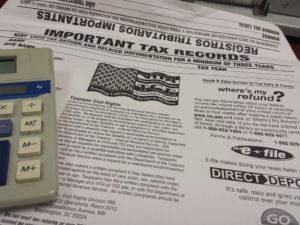R&D Tax Credit Rules
The R&D tax credit is set out in I.R.C. § 41. The statute includes about 5,000 words.
These words are supplemented by the R&D credit regulations. The regulations are Reg. § 1.41-1 through 1.41-9:
- Reg. § 1.41-1 Credit for increasing research activities
- Reg. § 1.41-2 Qualified research expenses
- Reg § 1.41-3 Base amount for taxable years beginning on or after January 3, 2001
- Reg. § 1.41-4 Qualified research for expenditures paid or incurred in taxable years ending on or after December 31, 2003
- Reg. § 1.41-4A Qualified research for taxable years beginning before January 1, 1986
- Reg. § 1.41-5A Basic research for taxable years beginning before January 1, 1987
- Reg. § 1.41-6 – Aggregation of expenditures.
The statute and regulations are supplemented by a growing body of court cases and administrative guidance. You can read the R&D tax credit court cases here.
The statute, regulations and guidance focus on qualified research activities, qualified research expenses, and various computational issues.
Qualified Research Activities
The R&D credit rewards taxpayers for performing qualified research activities (“QRAs”). QRAs include activities that satisfy the four-part test and that do not fall within one of several exclusions.
The Four-Part Test
The four-part test requires that the activity be for:
- Expenditures eligible to be treated as research expenses under I.R.C. § 174. This includes costs “incurred in connection with the taxpayer’s trade or business which represent research and development costs in the experimental or laboratory sense.” This generally includes all research and development costs incident to the development or improvement of a product, but not any expenditure for the acquisition or improvement of land or depreciable property.
- Research that is undertaken for the purpose of discovering information that is
“technological in nature.” Information is technological in nature if the
process of experimentation used to discover such information fundamentally relies on principles of the physical or biological sciences, engineering, or computer science. A taxpayer may employ existing technologies and may rely on existing principles of the physical or biological sciences, engineering, or computer science to satisfy this
requirement. The taxpayer need not seek information that exceeds, expands
or refines the common knowledge of skilled professionals in the particular field of science or engineering, nor is the taxpayer required to succeed in developing a new or improved business component. - For the purpose of discovering information which is intended to be useful in the
development of a new or improved business component of the taxpayer. A “business component” is any product, process, computer software, technique, formula, or invention that is to be held for sale, lease, or license, or used by the taxpayer in its trade or business. Research is undertaken for the purpose of discovering information if it is
intended to eliminate uncertainty that exists because the information available to the taxpayer does not establish the capability or method for developing a business component, or the appropriate design of the business component. - “Substantially all,” meaning at least 80 percent, of the research activities constitute elements of a process of experimentation for a qualified purpose. A process of experimentation “is a process designed to evaluate one or more alternatives to achieve a result where the capability or the method of achieving that result, or the appropriate design of that result, is uncertain as of the beginning of the taxpayer’s research activities.”
Excluded Activities
Research activities are excluded if they are for:
- Research after commercial production.
- Adapting an existing business component to a particular customer’s requirement or need.
- Duplicating an existing business component.
- Surveys and studies, such as (i) efficiency surveys, (ii) management functions or techniques (including preparation of financial data, development of employee training
programs, and management-based changes in production processes), (iii) market research, testing or development (including advertising or promotions), (iv) routine data collections, and (v) ordinary testing or inspections for quality control. - Research conducted outside the United States, Puerto Rico, or a U.S. possession.
- Research in the social sciences (including economics, business management, and
behavioral sciences), arts, or humanities. - Research funded by another person or governmental.
Qualified Research Expenses
Qualified research expenses can include wages and self-employment earnings, contract costs, computer rental costs, and supply costs.
The wage and self-employment QREs have to be for qualified services. The term “qualified services” includes actually conducting qualified research and directly supporting or directly supervising (i.e., first-line management) qualified research.
In Suder v. Commissioner, the court concluded that the wage QREs have to be reasonable. This raises difficult questions as to what is reasonable compensation.
R&D Tax Credit Computation Issues
The research tax credit is incremental. This means that the tax credit for the current year is computed by comparing the current year QREs to the QREs in prior years. The prior tax years are the base period years.
The base period years differ based on whether the taxpayer elects to compute its credit using the regular method or the alternative simplified method.
Defending Your R&E Tax Credits
We help clients defend their research tax credits. This includes helping with IRS and state audits, appeals and litigation for research tax credits.
We have defended hundreds of research tax credits.
If you have taken a research tax credit and the IRS is auditing your return, we want to hear from you.
Call us at (713) 909-4906 or schedule an appointment to discuss your research tax credit case.
R&D Tax Credit Articles
- Website Development Tax Deductions & the Start-Up Rules
 There are several tax laws that have to be considered to determine when and how costs to develop websites are deductible. These expenses are almost always deductible. These tax laws raise timing questions. It’s a matter of when the expenses… Continue reading Website Development Tax Deductions & the Start-Up Rules
There are several tax laws that have to be considered to determine when and how costs to develop websites are deductible. These expenses are almost always deductible. These tax laws raise timing questions. It’s a matter of when the expenses… Continue reading Website Development Tax Deductions & the Start-Up Rules - Enough is Enough, But An Amended Tax Return is Not
 The process for reporting taxes can be more difficult than discerning whether a tax provision applies. This complexity stems from the level of information is required to be reported. The IRS reporting requirements continue increase every year. The IRS’s decision… Continue reading Enough is Enough, But An Amended Tax Return is Not
The process for reporting taxes can be more difficult than discerning whether a tax provision applies. This complexity stems from the level of information is required to be reported. The IRS reporting requirements continue increase every year. The IRS’s decision… Continue reading Enough is Enough, But An Amended Tax Return is Not - Research Tax Credit Records Must Be Kept for 40+ Years
 A frequent question is how long one has to keep records for tax purposes. The United States v. Quebe, No. 3:15-cv-294 (S.D. Ohio 2019) case provides the answer for research tax credits. The answer is that you have to keep… Continue reading Research Tax Credit Records Must Be Kept for 40+ Years
A frequent question is how long one has to keep records for tax purposes. The United States v. Quebe, No. 3:15-cv-294 (S.D. Ohio 2019) case provides the answer for research tax credits. The answer is that you have to keep… Continue reading Research Tax Credit Records Must Be Kept for 40+ Years
More articles about the research tax credit.
In 40 minutes, we'll teach you how to survive an IRS audit.
We'll explain how the IRS conducts audits and how to manage and close the audit.

